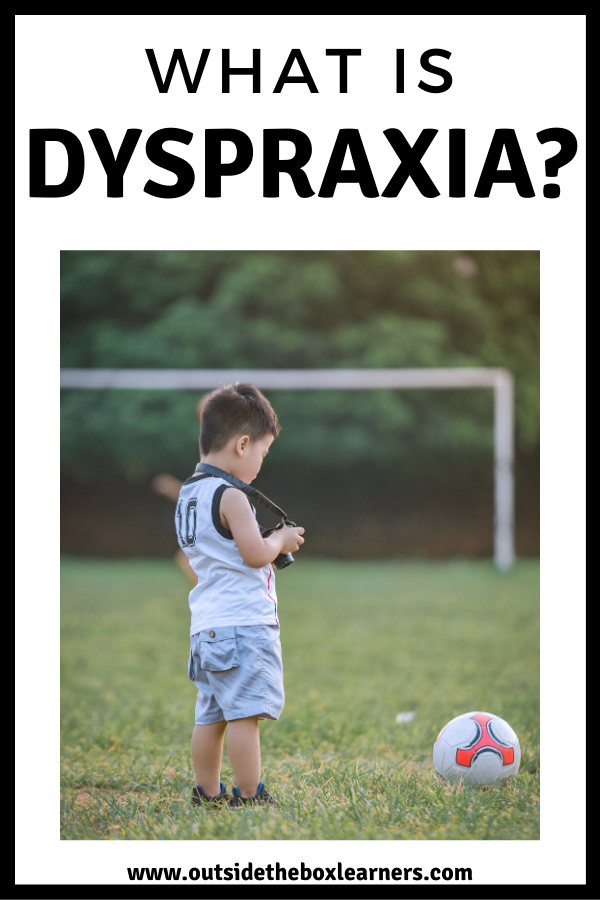What is Dyspraxia?
You’ve heard of dyslexia. Possibly dysgraphia. How about dyscalculia?
And lastly – what I’m going to talk about here because it directly affects our own family: dyspraxia.
This blog post contains affiliate links and any purchases made through these links will result in a small commission for me (at no cost to you!)
Before I go into it let’s dive into the roots of those words a bit.
(I LOVE doing this by the way!)
Dyslexia: Dys (poor or inadequate) lexia (words or language)
Dysgraphia: Dys (poor or inadequate) graphia (writing)
Dyscalculia: Dys (poor or inadequate) calculia (math or numbers)
Dyspraxia: Dys (poor or inadequate) praxia (action)
Merriam Webster’s definition of dyspraxia is: “impairment of the ability to perform coordinated movements”
In many other places, dyspraxia is defined as a neurological disorder that affects movement and coordination.
Basically the brain is not communicating accurately with the body.
And these difficulties with motor coordination interfere with daily life (it’s more than just being un-coordinated, or clumsy.)
What does (or can) dyspraxia look like?
- Clumsiness
- Slower processing of information
- Difficulty completing gross or fine motor tasks
- Handwriting difficulties
- Trouble tying shoes, buttoning a shirt,etc. (My son just finished his first season of track and used these shoes!)
- Issues in working memory
- Often Sensory Processing Disorder (SPD) is seen alongside dyspraxia.
The most famous person I know of with dyspraxia is Daniel Radcliffe (Harry Potter).
So obviously having dyspraxia doesn’t mean you won’t succeed in life but you probably aren’t going to be a star athlete.
Does it ever go away?
It is usually noticed in childhood and then follows you into adulthood.
We’ve done a few interventions that I believe have helped our son including Occupational Therapy (with a therapist who focused on sensory issues), Vision Therapy, Brain Balance and biomedical interventions.
Also, swimming really helps with body awareness, and taekwondo (provided you have an understanding instructor) can be great for bi-lateral movement (integrating both sides of the brain.)
How does it affect learning?
Dyspraxia is more than being uncoordinated or clumsy, it also deals with the brain. So naturally, it will impact learning.
However, having a learning disability does not mean you have lower intelligence. In fact, I would venture to say some of the greatest minds have a learning disability (did you know that 3 of the sharks on Shark Tank have dyslexia?!)
Dyspraxia does affect learning because it often means a slower processing speed, which means it may take more time to learn new things. Also, it hinders one’s’ ability to plan and organize their thoughts. Yeah, that would definitely make learning harder!
I remember when I made the difficult decision to pull my son out of public pre-school where he was getting supports. But it just killed me to see him drifting away in the class.
It makes sense he did not thrive in that environment. Kids with dyspraxia learn best one on one.
I am so thankful I get to homeschool my son. It truly brings me to tears sometimes. He doesn’t have to feel less than. He can pursue studying the things he loves.
And not to mention he is one amazing reader. (Sorry for the mom brag, I’m just super proud of him!) He is such a sweet, helpful, logical, inquisitive kid and I am blessed to be his mom.

Thank you for sharing! I can imagine how proud you are of your son and thank God for homeschooling. I’m suspecting that my son has this issue and we started homeschooling him this year. He is thriving and loves learning. He is so smart but like you said, thrives with one-on-one learning so we weren’t seeing his full potential when he was in preschool. We are also doing speech therapy, OT and recently enrolled him in Brain Balance. So far, so good. Take care and God bless!